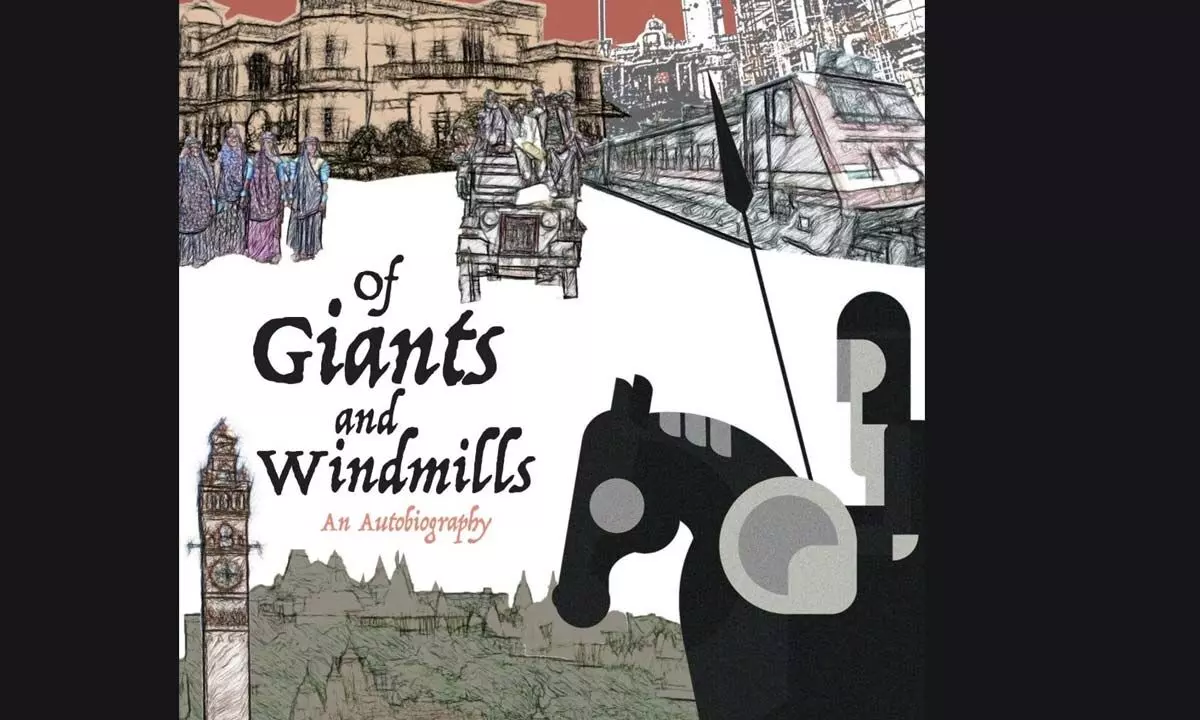'Don Quixote was the inspiration for my autobiography'

‘Don Quixote was the inspiration for my autobiography’
For former IAS officer Moosa Raza, an Advisor to the Uttar Pradesh Governor in the wake of the Babri Masjid demolition, writing his autobiography, "of Giants and Windmills (Niyogi Books) was not only a jog down memory lane but a deep desire to highlight some of the personalities who impressed him and also was an opportunity to talk about some others who thought of themselves as giants but turned out to be only windmills, or rather windbags, on closer acquaintance.
For former IAS officer Moosa Raza, an Advisor to the Uttar Pradesh Governor in the wake of the Babri Masjid demolition, writing his autobiography, "of Giants and Windmills (Niyogi Books) was not only a jog down memory lane but a deep desire to highlight some of the personalities who impressed him and also was an opportunity to talk about some others who thought of themselves as giants but turned out to be only windmills, or rather windbags, on closer acquaintance.
From the teachers who left formative impression on him to the events that left formative impression on our country's socio-political fabric, from finding innovative solutions to issues faced by public servants to being blindsided by the innovative tricks of cunning criminals, Raza's autobiography is an excavation of memories from a life spent in trying to maintain social order in a chaotic and unpredictable country.
'Looking back on my IAS career, I realise that the early officers in the service of independent India, had a unique experience. We were following in the footsteps of our British predecessors while trying to forge a new identity for the administration. Like Don Quixote, who was the inspiration for my autobiography, I encountered many giants, those who laid the foundation for an emerging nation, and tilted at many windmills, who even today are dotted throughout our landscape, blocking out the sun of our nation's success. This book is my homage to all the IAS officers like me, who might find themselves in the pages of my autobiography," Raza says of the book.
During the early decades post India's independence, Raza, a young IAS officer hailing from a small village in Tamil Nadu, was tasked with governing huge, diverse and complex territories in the newly formed state of Gujarat. Raza had the distinction of heading four districts (todays' seven) as district magistrate and collector in Gujarat, and rose to become principal secretary to the chief minister of Gujarat.
This book is an elaborately layered account of Raza's experiences and encounters with maharajas, politicians, tribals, tigers and a variety of other inhabitants of the country. With tongue-in-cheek humour, Raza details his head-on collisions with public figures, gold smugglers and bureaucrats, and his attempts to deal with them with tact while trying to hold his own. Raza describes well-known figures, including C.V. Raman, Morarji Desai, Indira Gandhi and others, with a lot of wit, honesty and empathy-they live again in these pages.
Drawing on his experiences in the Indian public sector, Raza throws light on the workings of varied industries, such as fisheries, textiles, chemicals and fertilizers. His first-hand account of the aftermath of the Babri Masjid demolition, in his capacity as Advisor to the Governor of Uttar Pradesh, reveals the travails of maintaining social order in a chaotic and unpredictable country.
On publishing the book Trisha De Niyogi, Director and COO, Niyogi Books, says: "This is a significant work and is so much more than simply the memoirs of an IAS officer. Mr Moosa Raza, in his long career, has dealt with famine, smugglers, riots, the Emergency and the aftermath of the demolition of the Babri Masjid. Readers will find much thought-provoking material in this book, which provides many insights into the challenges and promises of modern India.'
Moosa Raza was born and brought up in a village in Tamil Nadu that had no electricity, no running water, no flush system and no doors to any house. During the first nine years of his life, he did not know the English alphabet and only learnt rudimentary Urdu. Today he writes poetry in English, Hindi, Urdu, Persian and Arabic. He has already published five books, including two collections of Urdu poems.
An IAS officer of the 1960 cadre, he rose to become a chief secretary of the state of Jammu and Kashmir and secretary to the Government of India. After retirement, he heads a large educational trust with 10,000 students, 600 academic and managerial staff and is the chairman of several private-sector enterprises in Mumbai. He continues to work and write even in his 80s and is deeply committed to the affairs of the nation.








